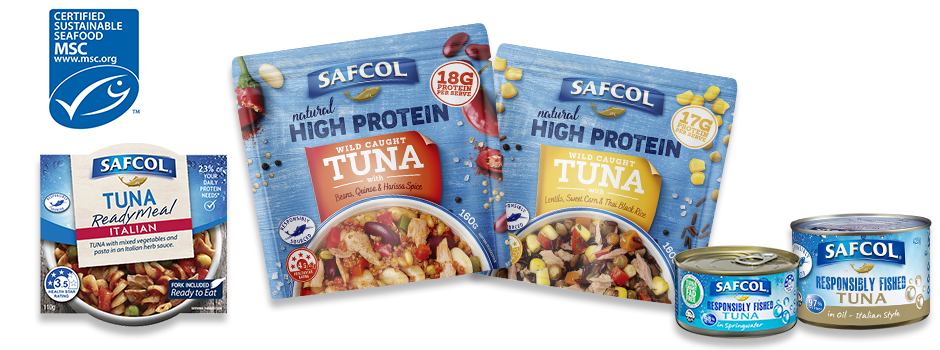The Importance of B12 in Pregnancy
Posted on : November 21, 2022
by Ashleigh Feltham
Accredited Practising Dietitian and Accredited Nutritionist
Vitamin B12 also called cobalamin, is one of the eight B vitamins. Vitamin B12 is vital for the body to keep nerve and red blood cells healthy. Vitamin B12 also promotes tissue, eye and brain health.
Cobalamin is also needed to make DNA, which stores the genetic material for your body. Being deficient in vitamin B12 can affect memory and can be misdiagnosed with conditions such as dementia, especially in the elderly.
You may not be aware of the importance of this water-soluble vitamin during pregnancy. Research has shown that suboptimal levels of vitamin B12 during pregnancy can negatively affect the health of the baby both in the short and long term.
A review of literature investigated the effects of vitamin B12 deficiency and pregnancy outcomes for both the mother and infant. The researchers found that vitamin B12 deficiency is associated with high blood levels of homocysteine concentrations at 18-20 weeks gestation. Homocysteine is an amino acid normally found in the blood. High levels of this amino acid is linked to poor health outcomes and disease states. There is a correlation between high homocysteine blood concentrations and damage to the DNA of the mother.
This DNA damage is associated with an increased risk of developing preeclampsia and intrauterine growth restriction. Preeclampsia is a condition that involves a combination of body systems in the mother. It is characterised by symptoms of high blood pressure and abnormally high levels of protein in the urine called proteinuria in the twentieth week of pregnancy.
Another study investigated the effects of vitamin B12 deficiency on pregnancy outcomes. Vitamin B12 deficiency was associated with an increased risk of developing megaloblastic anaemia, a type of anaemia that causes very large red blood cells. Megaloblastic anaemia during pregnancy is linked to many ill health outcomes for the infant. These poor health outcomes include an increased risk of low birth weight, neural tube defects and re-occurring pregnancy losses, permanently affecting the cognitive development of the foetus, anaemia and intrauterine growth restrictions.
Low blood level concentrations of vitamin B12 are also linked to an increased risk of the infant developing insulin resistance as well as a higher likelihood of being born with a congenital heart defect.
This research reinforces the importance of including enough foods in your diet containing vitamin B12 to promote optimal pregnancy and health outcomes. Vitamin B12 is naturally found in animal foods such as:
- Eggs, including the yolk
- Dairy such as cow’s milk, cheese, custard and yoghurt
- Red meat like beef, lamb, game meats like kangaroo, and pork
- White meat like poultry and turkey
- Fish — all varieties, but tuna and haddock are particularly high in B12
- Shellfish
Vitamin B12 can also be added to food or drinks through fortification, such as soy milk, nutritional yeast, cereals or rice milk.
Take home message
Vitamin B12 is essential for health throughout your life. This is true from the very beginning of development in utero when the mother is the single source of nutrition for the growth and development of an unborn baby.
References:
- Herbert V, Drivas G, Manusselis C, Mackler B, Eng J, Schwartz E. Are colon bacteria a major source of cobalamin analogues in human tissues? 24 hr human stool contains only about 5 ug of cobalamin but about 100 ug of apparent analogue (and 200 ug of folate) [letter]. Trans Assoc Am Physicians 1984;97:382.
- Carmel R, Karnaze DS, Weiner JM. Neurologic abnormalities in cobalamin deficiency are associated with higher cobalamin ‘analogue’ values than are hematologic abnormalities. J Nutr 1995;125:2511–5.
- Kondo H, Binder MJ, Kohhouse JF, Smyth WR, Podeil ER, Alien RH, et al. Presence and formation of cobalamin analogues in multivitamin-mineral pills. J Clin Invest 1982;70:889–98.
- Health AGDo. Eat for Health Australia: Australian Government National Health and Medical Research Council; 2015 [cited 2017 27/02/2017]
- Julia L Finkelstein, Alexander J Layden, Patrick J Stover, Vitamin B-12 and Perinatal Health, Advances in Nutrition, Volume 6, Issue 5, September 2015, Pages 552–563,
- Furness, D., Fenech, M., Dekker, G., Khong, T.Y., Roberts, C. and Hague, W. (2013), Folate, Vitamin B12, Vitamin B6 and homocysteine: impact on pregnancy outcome. Maternal & Child Nutrition, 9: 155-166.






